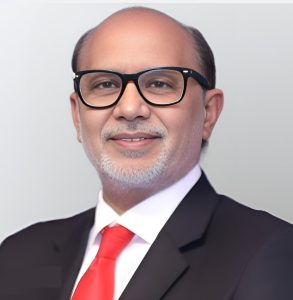
Muhammad Arif
In a stunning display of regulatory insensitivity, the Oil and Gas Regulatory Authority (OGRA) has announced that its forthcoming public hearings on 6th and 7th November 2025 relating to final RLNG Price determination for the period from 1st April 2015 to June 2022 (over 6 years) and ERR for the year 2025-26, to determine the gas price for consumers of Sui Northern Gas Pipelines Limited (SNGPL), will be held not at OGRA’s own premises, nor at a neutral public venue as was being done in the past, but inside the head office of SNGPL itself—the licensee and direct beneficiary of the very price determination under review. The decision is not a mere procedural lapse; it is an assault on the very principles of transparency, fairness, and independence that define regulatory governance. It represents the kind of institutional complacency that blurs the line between regulator and regulated, turning what should be a quasi-judicial proceeding into a managed corporate presentation.
Public hearings under Section 8(2) of the OGRA Ordinance, 2002, are not symbolic gatherings; they are legal instruments designed to uphold public confidence in the regulator’s impartiality. These hearings are meant to give consumers, industrial stakeholders, and civil society a chance to examine and challenge the licensee’s cost and revenue assumptions before any price is approved. The provision requires OGRA to “invite public representations” and to hold an “open hearing” before making its determination. Such a process, by definition, must be conducted in an environment free from undue influence—an environment where the regulator maintains full control over access, logistics, and record-keeping. By choosing to hold the hearing in the licensee’s office, OGRA has breached not only the spirit but arguably the letter of the law.
The legal framework governing regulators in Pakistan places utmost emphasis on independence. OGRA Ordinance mandates the Authority to ensure transparency and impartiality in its decisions. This mirrors international best practice: the UK’s Gas and Electricity Markets Authority (Ofgem), for instance, is legally prohibited under the Utilities Act 2000 from holding hearings or consultations at premises controlled by regulated utilities. In the United States, the Federal Energy Regulatory Commission (FERC) holds tariff and rate hearings exclusively at neutral federal facilities or via public virtual hearings managed directly by the Commission’s secretariat, to prevent any appearance of bias. In India, the Appellate Tribunal for Electricity has repeatedly emphasized that regulatory bodies must not only be independent but must be seen to be independent. The confidence of stakeholders in the neutrality of the regulator is as essential as the regulator’s technical competence.
When a public hearing is held at the licensee’s premises, several dangers emerge. First, the perception of bias becomes unavoidable. Consumers and civil society participants cannot reasonably feel confident that they are speaking freely when surrounded by officials of the very company whose financial performance is being scrutinized. Second, the control of environment—security checks, access restrictions, and audiovisual management—lies in the hands of the regulated entity, creating a clear conflict of interest. Third, the symbolic impact is devastating: the regulator, by physically entering and operating from the licensee’s space, reduces itself from an adjudicator to a guest. Even if OGRA’s members retain individual integrity, the institution’s image of independence collapses.
The move also violates the standards set by the OECD Principles for the Governance of Regulators (2014), which require that regulators “maintain an appropriate degree of arm’s length distance from the entities they regulate to ensure decisions are made without undue influence.” Pakistan, as a signatory to several international frameworks promoting regulatory transparency and anti-corruption (including the UN Convention Against Corruption), is bound to uphold these standards in both letter and spirit. Conducting a hearing under the hostship of a licensee mocks these commitments and deepens public suspicion of regulatory capture.
Regulatory capture—the process by which regulatory agencies become dominated by the industries they are charged with regulating—is not merely a theoretical concern. In Pakistan’s energy sector, it has become a recurring pathology. Over the years, OGRA has allowed retrospective RLNG price revisions spanning six to seven years, approved cost recoveries without forensic validation, and turned a blind eye to accounting manipulations in gas utilities’ revenue claims. These actions have collectively transferred billions of rupees in avoidable burdens onto consumers. Now, by physically relocating its decision-making process into the licensee’s office, OGRA has given a visible, physical expression to that capture.
In democratic societies, independent regulation serves as the citizen’s last line of defense against monopolistic abuse. It is the institutional firewall that ensures fairness between corporate power and public interest. The moment that firewall starts operating from within the corporate walls, its integrity evaporates. Imagine the Securities and Exchange Commission holding an insider trading inquiry at the stockbroker’s premises, or the State Bank conducting monetary policy meetings at a commercial bank’s boardroom. Such imagery borders on the absurd—and yet that is exactly what OGRA is going to do in the case of SNGPL.
The Authority must immediately rectify this grave procedural impropriety. The hearing should be relocated to OGRA’s own premises or to a neutral public venue under its exclusive control. Detailed reasons must be issued explaining how such a venue was initially chosen, and the decision-making process should be subjected to stern scrutiny. The Cabinet Division and the Councel of Common Interests must take cognizance of this blatant erosion of institutional boundaries, which is mandated to oversee the functioning of regulatory oversight.
Regulatory institutions derive their legitimacy not from coercive powers but from public confidence. That confidence is built on distance—distance from government influence, from commercial interests, and from the regulated entities themselves. When a regulator begins to share the same walls, corridors, and refreshments as the regulated, it ceases to be a guardian of public interest and becomes part of the very machinery it was meant to oversee. If OGRA fails to correct course, it will not merely have eroded public trust; it will have legitimized a precedent that fundamentally undermines the concept of independent regulation in Pakistan. Public hearings are not to be hosted by licensees—they are to be conducted for the public, by the regulator, in spaces free from fear or favor. Anything less is not regulation; it is connivance, collaboration and rubber stamping of the wishes of licensee under the guies of a regulatory decision making process.
The Writer is former Member (Gas) of OGRA, petroleum lawyer, governance advocate, and consumer rights activist; [email protected]| 0333 5191381
(Opinions expressed in this article are the author’s own and do not necessarily reflect WNAM’s editorial policy)


